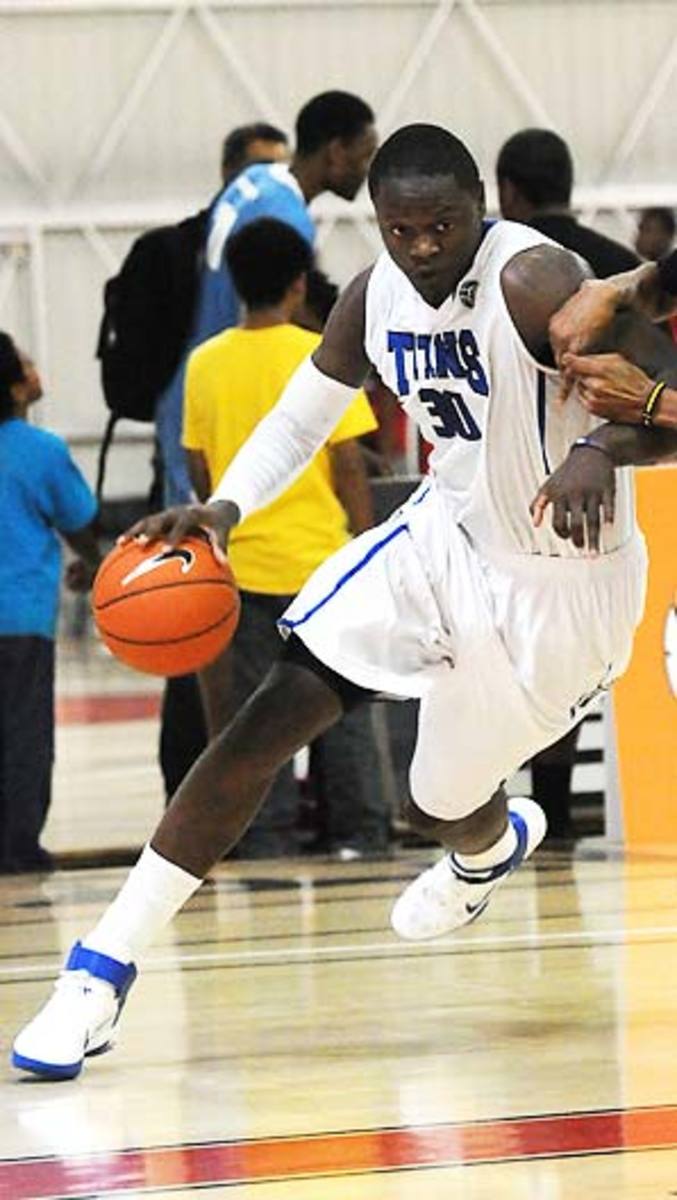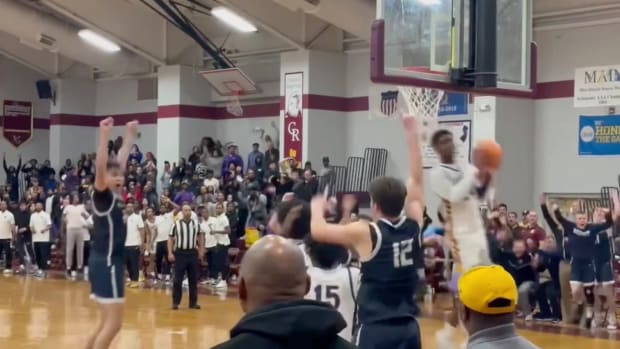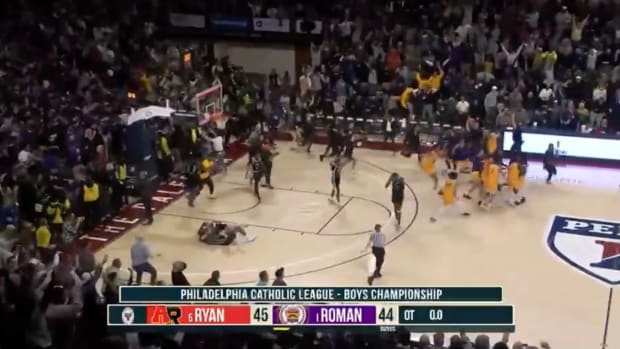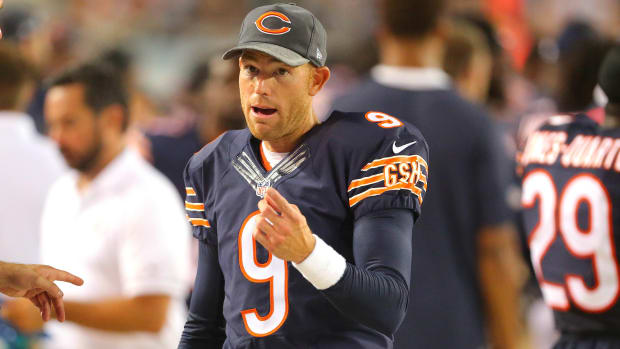Top hoops recruits constantly battling negative recruiting tactics
The mere thought of playing in front of thousands of the rowdiest and most passionate fans in college basketball as they chant "Rock-chalk-Jay-Hawk, K-U-U-U" makes Greene, a sharpshooter, giddy with excitement.
He's equally as thrilled that he'll learn under assistant athletic director for sports performance Andrea Hudy, a legendary trainer who developed eight national championship teams at Connecticut before joining Kansas in 2004.
Then there's Bill Self.
"He's a legend," said Greene, a rising senior at Tift County (Forsyth, Ga.). "Having him coach me is enough in itself. I couldn't be happier."
That's why, for the life of him, Greene can't understand why he's still being recruited with the same persistence and passion by college coaches as if he were still uncommitted.
"It's crazy," said Greene, who is ranked No. 22 in the Rivals150. "I'm always thinking in the back of my mind 'you do know I'm committed, right?' They want to know if I'm still open to their schools, but even though I say I'm not they keep coming."
Added Greene's father, Jeffrey: "It used to shock me, but not anymore. After a while you get immune to it."
Greene's scenario isn't abnormal. It's not even a growing trend; it's one of many negative recruiting tactics college coaches use to try and lure recruits. Tactics that players and parents say get old really quick.
"I don't really like hearing about why I shouldn't go to certain schools too much," said Julius Randle, a rising senior forward at Prestonwood Christian (Plano, Texas). "It happens all the time, but, for me, I just don't like when coaches do that."
Greene said that before he committed to the Jayhawks he was "constantly" questioned by coaches recruiting him about why he was even considering Connecticut since coach Jim Calhoun, who turned 70 in May, "would never coach me because he's sick and going to retire."
Calhoun ended up stepping down as the Huskies head coach on Sept. 13.
"I heard that one all the time," said Greene, who once had to personally reassure Self that rumors of his impending de-commitment were untrue. "It's crazy that coaches go to that level with it, but they do whatever they can to get you, I guess. It's hard to hold it against them because, I'd say, most of them do it in some way."
Most, but not all.
Missouri associate head coach Tim Fuller says he is part of the latter.
He likened negative recruiting tactics to a lesson his mother taught him about people who use profanity.
"She used to tell me the reason that people use profanity is because they're not intelligent enough to find a word to express their thoughts," Fuller said. "That's what it is in recruiting. When they're not apt enough to come up with things to sell their program, they try and take down someone else's program. It's pretty weak."
Nerlens Noel agreed.
He recalled a conversation with a college coach during his recruitment process who urged him not to let money play a factor in luring him to Kentucky. Noel, a center, eventually picked the Wildcats.
"I was shocked that he would say something crazy like that," said Noel, the No. 2 player in the Rivals150 last season. "Of course I would never accept money and of course Kentucky never offered me money, but to hear that from him turned me off. I didn't hold it against him because I know coaches get jealous at times. I just look at it like they're really just insecure about themselves."
Randle came to the same conclusion.
As the top ranked player in the Rivals150, Randle has had to deal with "an unreal amount" of negative recruiting tactics. Some coaches said that Duke and North Carolina didn't properly develop players, while others said Kentucky was too crowded.
"It's crazy," Randle said. "But I have a mind of my own. Every school has pros and cons and the same school that's dissing a certain school isn't talking about their cons. I look at it as the coaches just hating."
Still, sometimes, even hating yields some degree of truth.
Randle's mother, Carolyn Kyles, said that when coaches down other schools it prompts her to do her own investigating.
"I listen to what the coaches say, but I don't react to it," Kyles said. "But then I go and watch the team play and sometimes what they're saying is true on some level. The biggest thing it does to me is makes me pay closer attention."
Wayne Selden gets a similar urge to be more attentive, just in a different way.
"It makes me pay more attention to the fact that you're steadily talking about this other school," said Selden, a shooting guard at Tilton (Tilton, N.H.) who recently reclassified from 2014 to 2013. "That's not cool. Just talk about why I should come to your school. I don't want to hear all that negativity."
And he's positive about that.




